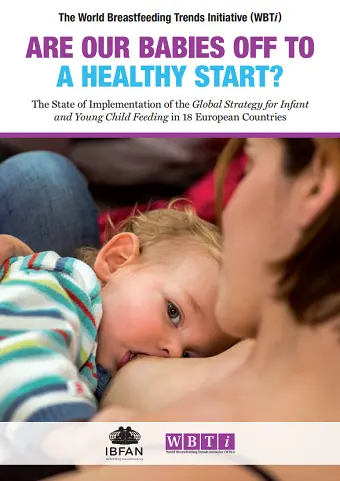5th June 2020
During #BreastfeedingCelebrationWeek, the first European report on infant and young child feeding policies and practices was launched yesterday. It compares 18 countries and identifies the considerable improvements they need to make in supporting mothers who want to breastfeed.
The COVID-19 pandemic has shown how important it is for countries to protect their citizens from illness. Babies who are breastfed have better health and resistance to infection, and most mothers want to breastfeed. Yet many European mothers stop or reduce breastfeeding in the early weeks and months, and bottle feeding is prevalent, due to inadequate support from health systems and society.
This new report, Are our babies off to a healthy start?, compares the implementation of WHO’s Global Strategy for Infant and Young Child Feeding by 18 European countries. The comparisons show clearly that inadequate support and protection for breastfeeding mothers is a Europe-wide problem. The health of babies, mothers and whole populations loses out as a result. However, countries do differ considerably. Turkey rates highest overall; the five countries with the lowest scores belong to the European Union.
The scope of the assessment is wide-ranging, with ten policy and programme indicators, including national leadership, hospital and community practices, marketing controls on breastmilk substitutes, health professional training, emergency preparedness and monitoring. There are also five feeding practices indicators, such as exclusive breastfeeding for 6 months, a WHO recommendation.
The indicators with the poorest overall scores are national leadership and, shockingly, emergency preparedness, where the UK scored 0/10.



